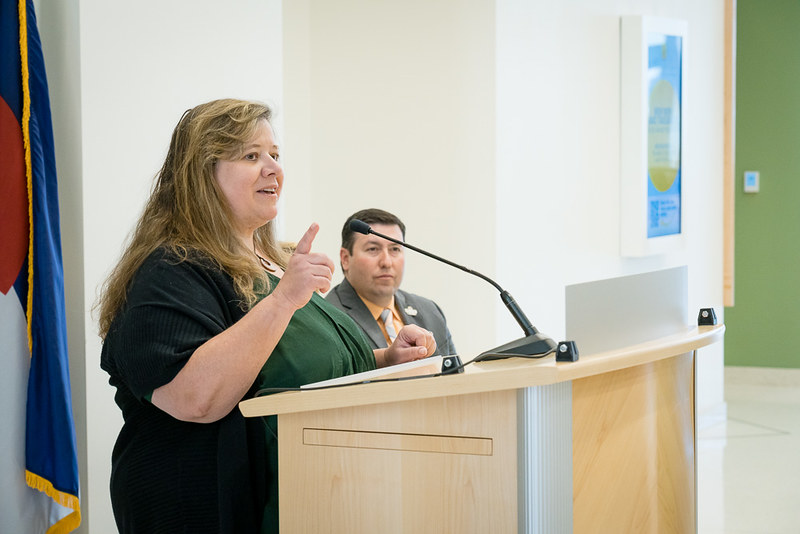
As host of one of the U.S. Department of Agriculture’s 12 new Regional Food Business Centers, Colorado State University will lead an effort to help farmers, ranchers and food entrepreneurs in six western states grow their businesses, while also strengthening connections between rural and urban areas and closing the gaps to success.
CSU — in partnership with Oregon State University — will enter into a five-year, $30 million cooperative agreement to establish the Northwest and Rocky Mountain Regional Food Business Center, serving Colorado, Idaho, Montana, Oregon, Washington and Wyoming.
Part of a $400 million initiative by the USDA, each center will facilitate cross-state coordination, technical assistance and capacity building to help agricultural producers and businesses across the food system access new markets and navigate federal, state and local resources.
“This center is in absolute alignment with CSU’s land-grant mission…,” said CSU President Amy Parsons. “It will address the most pressing problems around the supply chain and access to food, and it provides service and technical support across the Rocky Mountain and the Northwest regions with a focus on sustainability and resiliency. It not only benefits the region, but the world.”
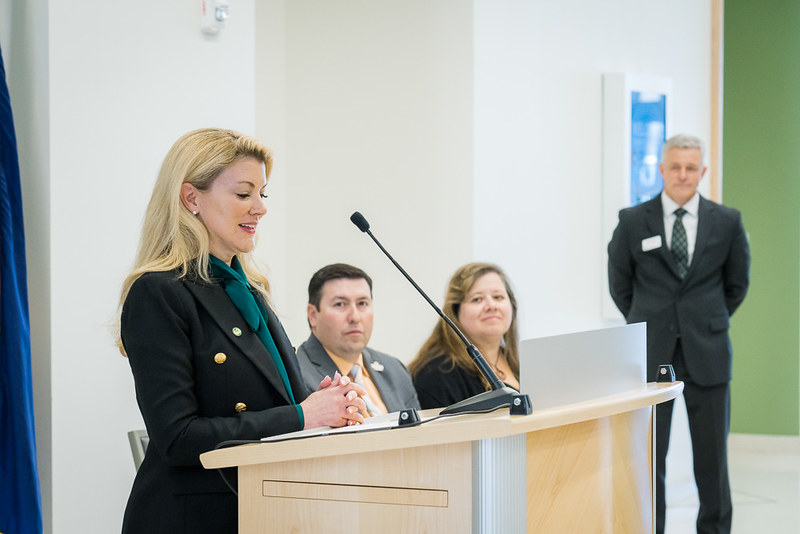
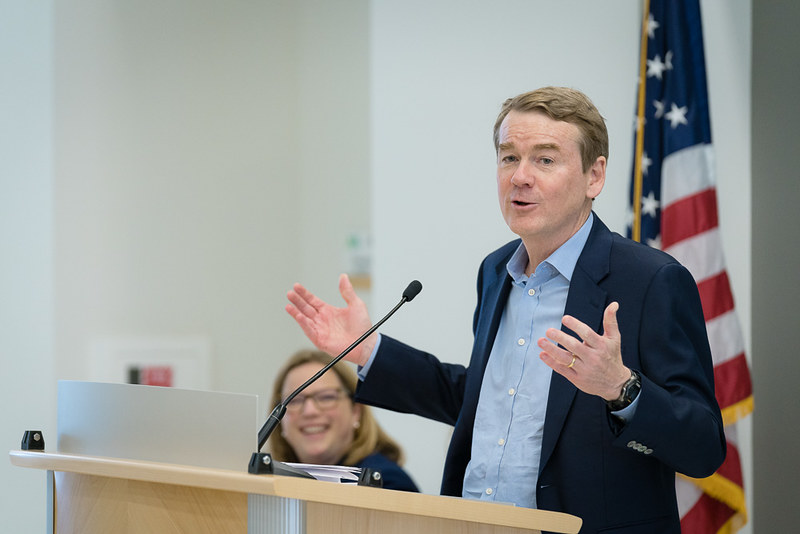
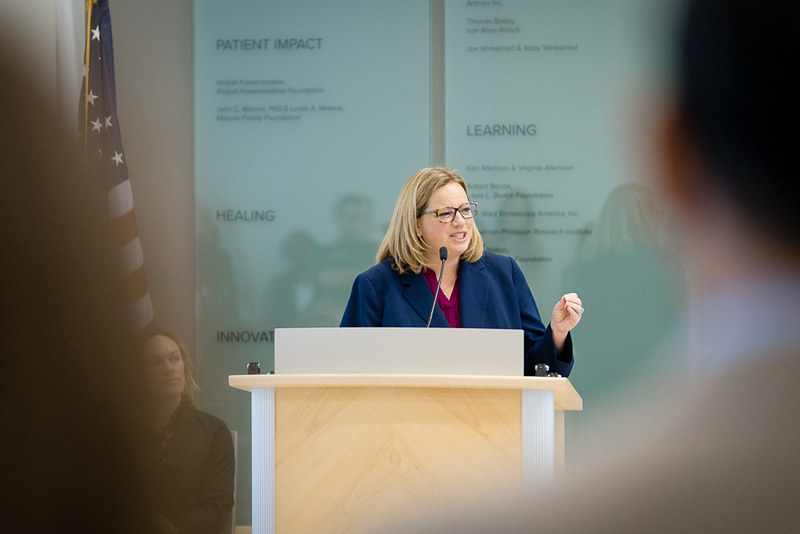
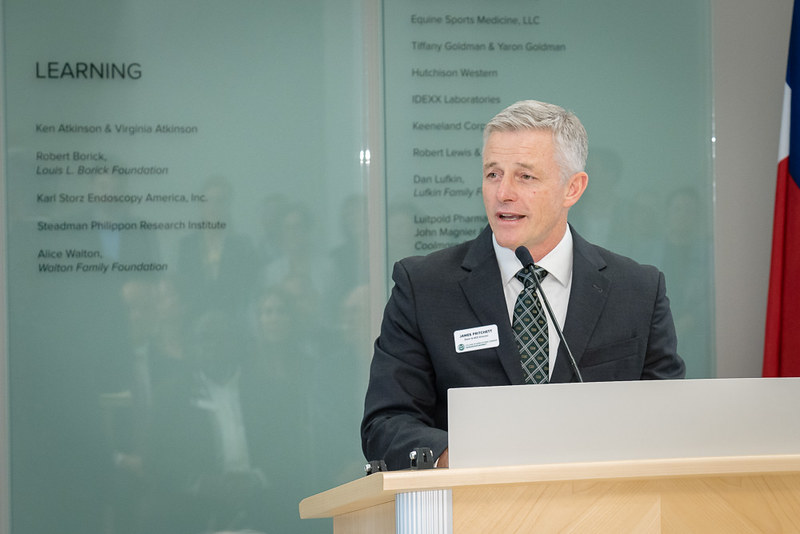
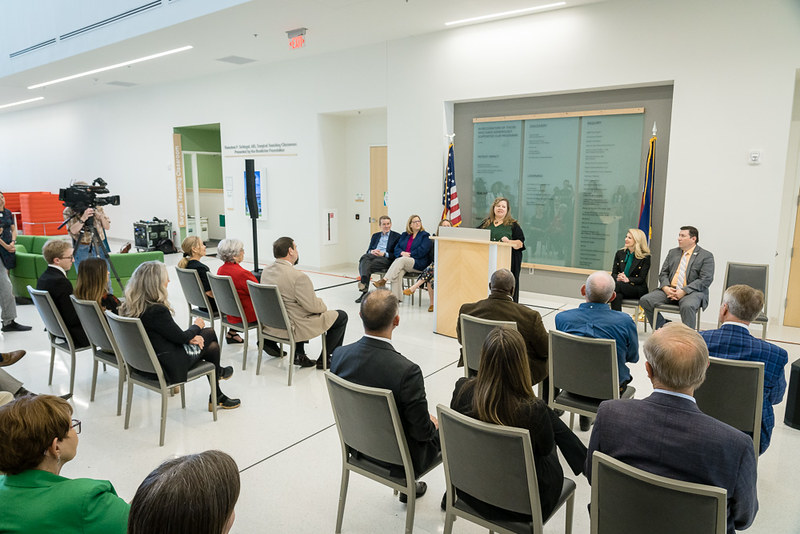
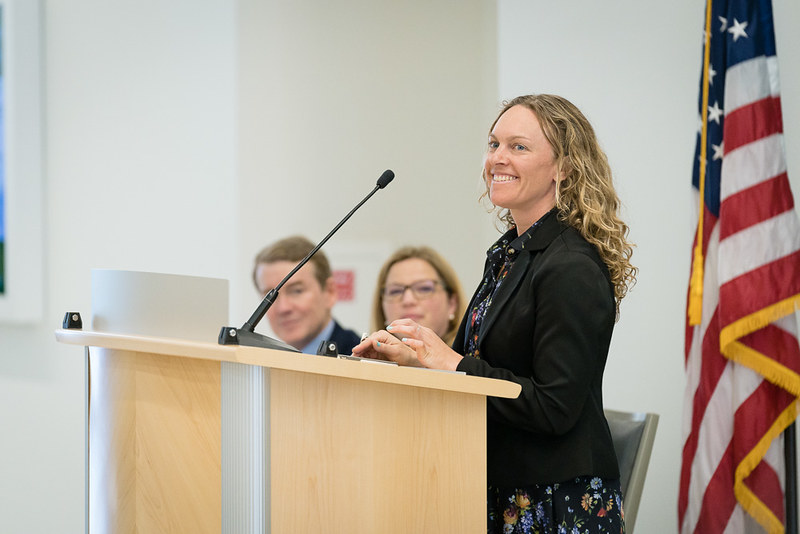
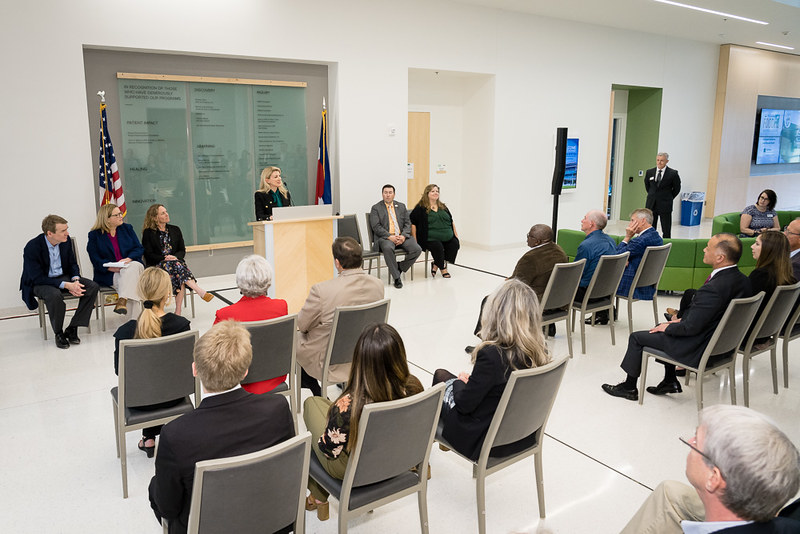
On May 5, agricultural advocates ranging from education to policy announced the collaboration. USDA Under Secretary for Marketing and Regulatory Programs Jenny Lester Moffitt, Colorado Commissioner of Agriculture Kate Greenberg, and U.S. Sen. Michael Bennet were all on hand.
“Colorado’s farmers and ranchers need strong partnership from Washington — and with historic investments in the American Rescue Plan, the Bipartisan Infrastructure Law, and the Inflation Reduction Act, I’m grateful we are providing that support,” Bennet said. “I cannot think of a better leader for this Regional Food Business Center than Colorado State University. With this center, we can strengthen our supply chains, grow our food and agriculture businesses, and support Colorado agriculture in the face of climate change and drought.”
Catalyzing economic development and advancing rural communities — in Colorado and beyond
Expanding market and economic opportunities for Colorado producers and strengthening local and regional food systems have been key priorities for the Colorado Department of Agriculture, said Colorado Commissioner of Agriculture Kate Greenberg.
Each regional hub will be awarded resources to elevate the connections, technical assistance and capacity of a diverse and inclusive set of farm and food-based enterprises operating in local and regional food supply chains. The primary goal is to leverage the expertise, resources and networks of established and new partners to create a resilient entrepreneurial ecosystem of stakeholders engaged in small and mid-tier food and farm business development for the six-state region.
The Northwest and Rocky Mountain Regional Food Business Center will target four areas of core needs within the region including:
– Resilient animal protein supply chains
– Food entrepreneurs seeking to scale up
– Farms leveraging opportunities aligned with emerging climate resilient markets
– Right-sized infrastructure and investment
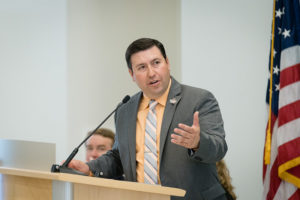
“CDA is honored to be at the table with CSU and our partners across the Rockies and the Pacific Northwest to help small and mid-sized agricultural businesses grow and have more opportunities to expand their work,” Greenberg said. “The Northwest and Rocky Mountain Regional Food Business Center will help us make sure more people have access to healthy, local food. Through partnerships like this one, CDA is investing in producers from seed to market, and we can make an even greater impact together.”
While the center isn’t solely focused on rural communities, it will have a significant impact on them, strengthening rural economies by investing locally and providing jobs and shifting more dollars back to family farms. Like CSU’s Extension offices and research centers across the state, its flagship university in Fort Collins, and the new CSU Spur campus in Denver, the RFC is a prime example of the broad investment required to meet the spectrum of needs in agriculture and rural communities, said Armando Valdez, who serves as vice chair of the Board of Governors of the CSU System as well as USDA Rural Development State Director.
“This investment is critical not just for today, but for the future,” said Valdez, who also operates the San Luis Valley farm and ranch that he was raised on. “It’s part of that development as we look to build up our economies, especially our rural economies, from the bottom up and the middle out. So, we are focused on that investment, the investment of the American people into a stable and safe food supply and thriving, robust rural communities.”
Growing relationships and engaging stakeholders
As a land-grant institution, CSU is already adept at utilizing cutting-edge research, education and community engagement to advance science, inform policy and improve market access to farmers as well as nutritious food access for Coloradans.
“It’s special to co-create knowledge and equip producers with the tools necessary for success,” said Dean of the College of Agricultural Sciences James Pritchett. “When the USDA makes a significant investment like this one, it allows CSU to work alongside stakeholders to determine what the actual needs are and invest in pragmatic solutions.”
Much of the kudos for coordinating the partnerships that will allow this center to thrive goes to Dawn Thilmany, professor within the Department of Agricultural and Resource Economics and co-director of the Regional Economic Development Institute, Pritchett said. Thilmany will serve as the director of the Northwest and Rocky Mountain Regional Food Business Center.
“The center is the capstone of a two-decade relationship that Dawn Thilmany has nurtured in this space,” Pritchett said. “It started with small community meetings that she hosted, and it built into the creation of programs like the Beginning Farmer and Rancher Development Program, looking at innovative ways farmers can directly market to consumers, and addressing supply chain disruptions. Dawn has a true understanding of what the blueprint of agriculture is today and what steps are needed for the food system to be more successful.”
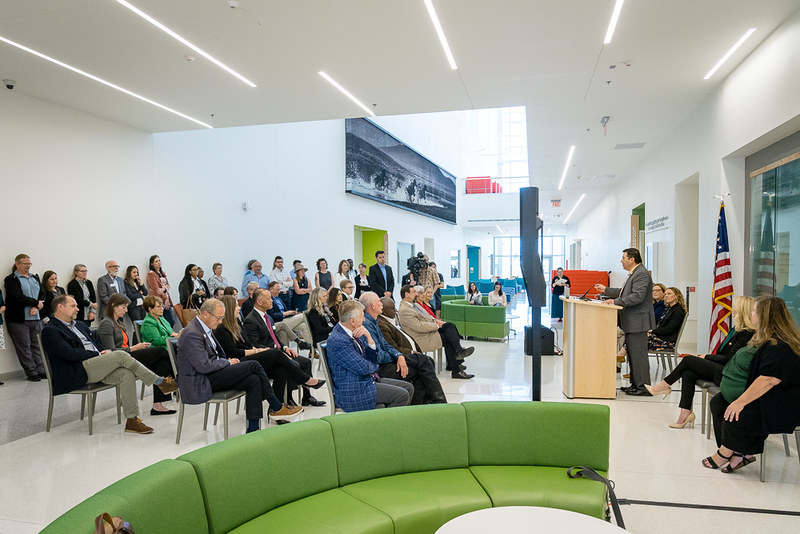
Thilmany said she’s excited for the opportunity to connect farmers and ranchers with the resources they need, and to look at things through a lens focused on inclusion to bring those to the table who, in the past, may have been overlooked or received too little attention.
The Northwest and Rocky Mountain Regional Food Business Center will work with partners, targeting historically underinvested communities in their region, to coordinate within and across states to develop, refine and deliver professional development and technical assistance programs, additionally investing in those participating enterprises who use programs to create new or updated innovative plans to build their capacity in those local and regional markets.
“The West is very diverse,” Thilmany said. “What works in one community is not going to work in all communities. That’s why we need those community partners who are going to give us the context we need to make sure we do this right.”
Interested partners and stakeholders can sign up for the Northwest and Rocky Mountain Regional Food Business Center mailing list to receive updates.